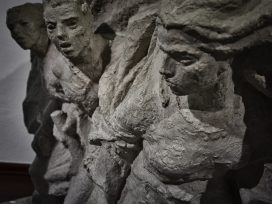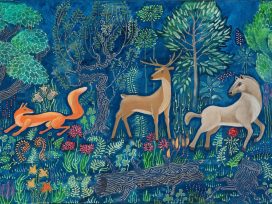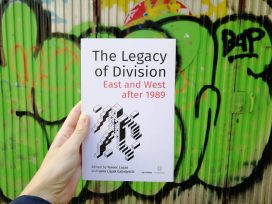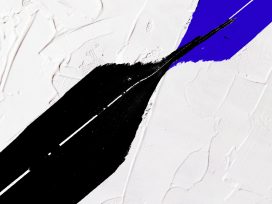Claus Clausen, editor of the Danish journal HUG, thought that I was a spy for the CIA. It made a sort of crazy sense: what was a writer not an editor, an American not a European, doing at a conference for editors of European cultural journals? How I found my way to that conference in 1989 in Berlin – just before the Wall fell – is a long story, but it was pure serendipity: I met people who became friends for life, and was given the chance to observe in microcosm a Europe growing closer and more connected almost in spite of itself.
Some of my clearest memories come from that conference. Sitting in the sunny meeting room of the Literarisches Colloquium in Berlin listening to people from a dozen countries debating ideas in at least three languages was like attending a summer camp for intellectuals! The meeting had a wonderfully disorganized, free-wheeling atmosphere, different from any academic conference I’d attended.
At the Berlin conference, and for years afterward, there was no agenda, no guest speakers, no conference theme. There was only Hans-Götz Oxenius, who out of his fondness for journals had put the event together and sat listening and smiling, pater familias to an assembly of people who seemed a little surprised that they’d been doing the same thing for years without knowing that each other existed. Much of the talk revolved around how to share articles – an article “bank” was discussed for years until Eurozine was born – but the subtext was really about people living in relative isolation who’d discovered that they weren’t alone.
The diversity of debating styles, however, started me thinking that there might actually be something to the concept of “national characteristics” that went beyond food or fashion, but that didn’t necessarily cancel out the universalism that ran deep in me. The Germans and Austrians spun theories off the top of their heads with dazzling skill; even if the theories didn’t always quite fit reality, I was impressed. The French could access huge amounts of information and lay it out in gorgeous phrases. The Scandinavians, at least most of them, were shyly ironic, as if they’d turned introspection into an art.
What could an American offer? Comic relief, maybe. A kind of personal pragmatism, where one starts with an anecdote and tries to work one’s way to a generalization. The first day of the meeting Lothar Baier glommed on to me, partly because we were brother-writers, and partly, I suspect, because he recognized me as Jewish: he was one of that remarkable group of post-war German intellectuals who took it upon themselves to repair the sins of the fathers. We became friends overnight. I think I recognized even then that Lothar had a kind of integrity that one rarely sees; over the years until his death four years ago, he was our intellectual watchdog, who with quiet authority cut through bullshit and pomposity to the core of an argument.
Maybe what’s most unusual about the group is that it endured at all. It never got a proper name or clear definition of purpose. Much of our time in the early days was spent looking for good restaurants in strange cities. Though we resolved to self-destruct by the year 2000, that didn’t happen. The meetings kept on, and along the way were memorable incidents: Walter Famler’s Kosmos scheme to preserve the memory of Yuri Gargarin; the grande bouffe shellfish feast that Olivier Corpet arranged in Caen; the search all over Moscow for bootleg CDs of the Encyclopaedia Britannica; the promise of untold riches that David Applefield, editor of Frank, dangled before us if we contributed to his lawsuit against a Canadian magazine; the birth of Eurozine itself, which old fogies like me doubted would get off the ground. Equally memorable characters passed through the meetings: Dimitrij Rupel, one of those eastern European survivors who ended up in the new Slovenia in top governmental posts; John Calder, the rotund, legendary British publisher whose anecdotes seemed to include every great twentieth century writer – and opera singer; Obrad Savic, the Belgrade Circle dissident whose debating style sometimes consisted of speaking louder than anyone else.
In a sense, Claus was right. I was an outsider who really had no business being there. But I was never less than welcome, and the initial delight in participating in this annual game of intellectual badminton hasn’t left me. More important, the group has provided diversity and community in a time when both these concepts are threatened.






